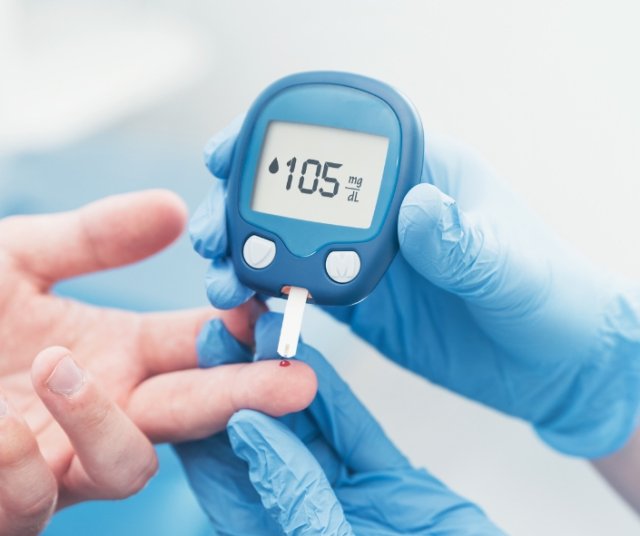Diabetes, a chronic disease that affects millions of people around the world, has become a public health concern of significant proportions. In this article, we will explore what diabetes is, the various types of the disease, and the underlying reasons for its increasing prevalence.
Diabetes:
Diabetes is a metabolic disorder characterized by high levels of glucose in the blood, also known as hyperglycemia. To better understand this condition, it is essential to explore the mechanisms behind diabetes and how it affects the normal functioning of the body.
Types of diabetes: Beyond a single label.
Diabetes is mainly classified into three types:
Type 1 diabetes: This form of diabetes is of autoimmune origin, where the immune system attacks and destroys insulin-producing cells in the pancreas. Insulin is crucial in allowing glucose to enter cells and be used as an energy source. Type 1 diabetes is usually diagnosed in childhood or adolescence and requires daily insulin administration to survive.
Type 2 diabetes: Type 2 diabetes is more common and usually develops in adults, although it can also affect children and adolescents. In this type of diabetes, the body does not use insulin effectively, and the production of this hormone may be insufficient. Factors such as genetics, sedentary lifestyle, obesity and age can contribute to the development of type 2 diabetes.
Gestational diabetes: This form of diabetes occurs during pregnancy and affects some women who did not have diabetes before pregnancy. Although it often disappears after childbirth, women with gestational diabetes have a higher risk of developing type 2 diabetes later in life.
Risk factors and causes of diabetes: Weaving a complex web.
Diabetes does not arise from a single cause, but from a combination of genetic and environmental factors. Some of the risk factors and causes of diabetes include:
Genetics: Genetic predisposition can increase the likelihood of developing diabetes. Family history of the disease may influence risk.
Obesity: Excess weight, especially abdominal fat accumulation, is strongly associated with type 2 diabetes. Visceral fat can release chemicals that contribute to insulin resistance.
Sedentary lifestyle: Lack of regular physical activity can increase the risk of type 2 diabetes. Exercise helps improve insulin sensitivity and controls glucose levels.
Unhealthy diet: Excessive consumption of foods high in calories, saturated fats and added sugars can contribute to the development of diabetes. A balanced diet is essential for glucose management.
Aging: The risk of diabetes increases with age. Reduced physical activity and changes in metabolism may contribute to the onset of the disease in older people.
History of gestational diabetes: Women who have experienced gestational diabetes are at increased risk of developing type 2 diabetes in the future.
High blood pressure: High blood pressure is linked to an increased risk of diabetes. High blood pressure can damage blood vessels and affect pancreatic function.
Impact of diabetes on health: Beyond hyperglycemia.
Diabetes is not just about high blood glucose levels; It has significant consequences for general health. Some of the complications and effects of diabetes include:
Cardiovascular disease: Diabetes increases the risk of heart diseases, such as high blood pressure, coronary heart disease, and stroke.
Kidney problems: Diabetes can damage the small blood vessels in the kidneys, leading to chronic kidney disease.
Eye problems: Eye complications, such as diabetic retinopathy, are common in people with diabetes and can lead to vision loss.
Neurological problems: Diabetic neuropathy can cause nerve damage, resulting in pain, numbness, and coordination problems.
Skin problems: Diabetes increases the risk of skin infections and wound healing problems.
Reproductive problems: Women with diabetes may face complications during pregnancy, including an increased risk of birth defects.
Dental problems: People with diabetes have a higher risk of periodontal disease, which can affect dental health.
Prevention and management of diabetes: A Holistic Approach.
Preventing and managing diabetes involves addressing multiple aspects of life, from diet and exercise to stress management and education about the disease. Some key strategies include:
Healthy diet: Adopt a balanced diet, rich in fruits, vegetables, whole grains and lean proteins, while limiting the consumption of processed foods and added sugars.
Regular physical activity: Incorporate regular physical activity, such as walking, running or playing sports, to improve insulin sensitivity and control glucose levels.
Maintaining a healthy weight: Maintaining a healthy weight reduces the risk of type 2 diabetes and helps in managing the disease in people diagnosed.
Glucose monitoring: For people with diabetes, regular monitoring of glucose levels is essential to adjust treatment as necessary.
Medications and Treatment Medical: In some cases, the use of medications to control glucose levels may be necessary. Medical management is essential for people with diabetes.
Stress management: Stress can affect glucose levels, so it is important to adopt stress management strategies, such as meditation or deep breathing.
Diabetes education: Understanding the disease and its management is essential. Continuing diabetes education helps people make informed decisions about their health.
Challenging the Diabetes Epidemic.
Diabetes, a complex and multifaceted condition, affects millions of people around the world. Understanding its mechanisms, risk factors and forms of prevention is crucial to addressing this global health epidemic.
By taking a holistic approach that includes lifestyle changes, a healthy diet, regular physical activity and effective stress management, we can challenge the spread of diabetes and improve the quality of life for those affected by this chronic disease. The prevention and management of diabetes is a shared responsibility between individuals, health professionals and society as a whole, working together to address this public health challenge.






